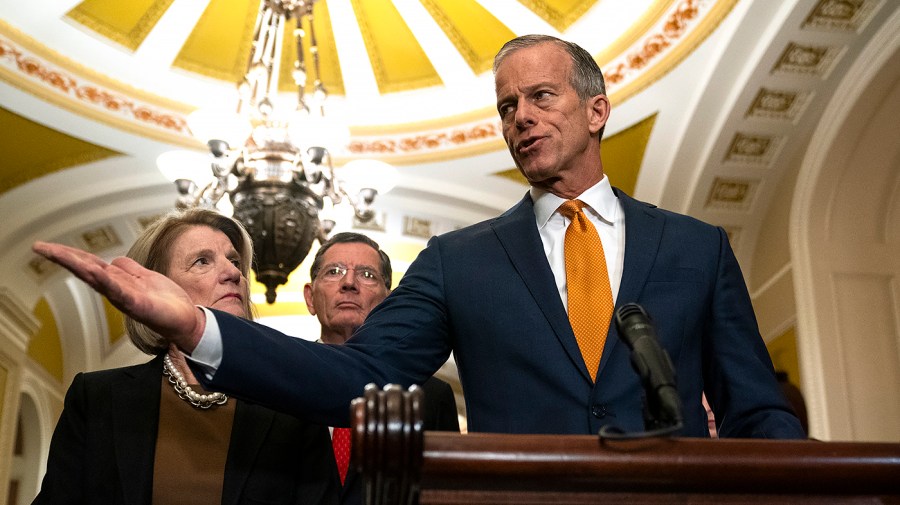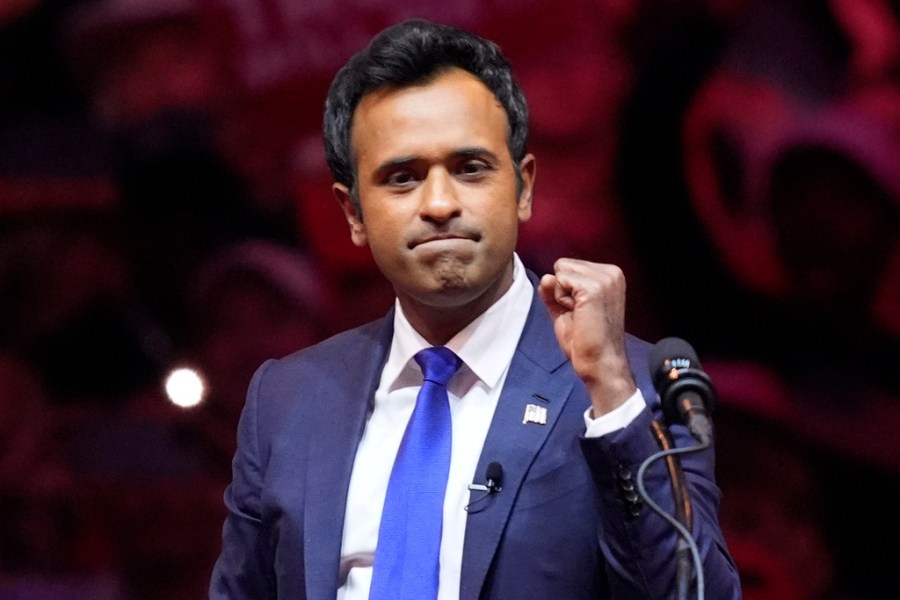
Senate advances Laken Riley Act, teeing up final vote
The Senate voted Friday to advance the Laken Riley Act, putting Republicans a step closer to sending the first bill of the 119th Congress to President-elect Trump for his signature next week and giving him an early win on one of his key issues.
Senators voted 61-35 to end debate on the bill, with 10 Democrats voting with every Republican; 60 votes were needed.
Democrats who voted “aye” were Sens. Ruben Gallego (Ariz.), Mark Kelly (Ariz.), Jon Ossoff (Ga.), Gary Peters (Mich.), Jacky Rosen (Nev.), Catherine Cortez Masto (Nev.), Jeanne Shaheen (N.H.), Maggie Hassan (N.H.), Mark Warner (Va.) and Elissa Slotkin (Mich.). Gallego and Sen. John Fetterman (D-Pa.), who did not vote, were co-sponsors of the legislation.
The vote tees up final passage of the immigration-related bill in the upper chamber early next week. Because the bill was amended, it will need to head back to the House for approval once again before Trump can sign it.
The legislation would mandate federal detention of immigrants without legal status who are accused of theft, burglary and assaulting a law enforcement officer, among other things.
“This bill is a small but critical step to resolving the Biden border crisis — the first of many I might add,” Senate Majority Leader John Thune (R-S.D.) said on the floor Friday morning ahead of the vote.
The bill is named after Laken Riley, a Georgia college student who was killed almost a year ago by a Venezuelan migrant who had been arrested for shoplifting ahead of the attack and paroled in the U.S.
A pair of procedural votes earlier this week were overwhelmingly backed by Democrats; 48 Democrats also voted to pass the bill in the House earlier this month.
However, while a number of those Democrats have said they would support final passage of the bill, others said they were only voting to open debate to facilitate an amendment process.
Friday’s vote was not nearly as large, after that amendment process did not bear the kind of fruit Democrats had hoped for.
The upper chamber only voted on two amendments, one of which — proposed by Sen. John Cornyn (R-Texas) that added the assault of a law enforcement officer provision — was adopted.
The other — offered by Sen. Chris Coons (D-Del.) and defeated along party lines — would have nixed part of the bill that hands state attorneys general authority to sue federal immigration officials over detentions.
Democrats raised numerous concerns about the bill in recent weeks, including the lack of funds available to deal with the detainments that will result from the bill. The Department of Homeland Security estimated it would cost nearly $27 billion to implement the law during the first year and that it “would be impossible for [Immigration and Customs Enforcement] to execute within existing resources.”
Other worries stem from the detainment of migrants upon arrest rather than conviction, and the issue surrounding state attorneys general that Coons’s amendment would have addressed.
Ahead of Friday’s cloture vote, Senate Minority Leader Chuck Schumer (D-N.Y.), who had earlier voted to open debate on the bill, lamented that more amendment votes were not brought to the floor.
“We voted on two amendments … and no more,” Schumer said. “Unfortunately without more changes … to address deficiencies, I’ll be voting ‘no.’”
“While I do not support this particular bill, I stand ready to work with both sides to pass smart, effective, tough and commonsense legislation to secure our borders and reform our immigration system,” Schumer added.
A number of Democrats voted for the bill only months after the party was decimated at the ballot box, with border security and immigration playing a key role as Republicans repeatedly panned Democrats for being too soft on those issues.
Democrats tried to blame Republicans for problems at the border for much of last year, especially after Trump and conservatives tanked a bipartisan border package. That argument, however, did not stick, as record crossings remained tethered to the Biden administration.
“Unfortunately, it seems that even a simple and straightforward bill to detain criminal illegal immigrants is too much for some on the left,” Thune said. “Some of our Democrat colleagues have been searching for a reason — any reason — to justify voting against this bill.”



